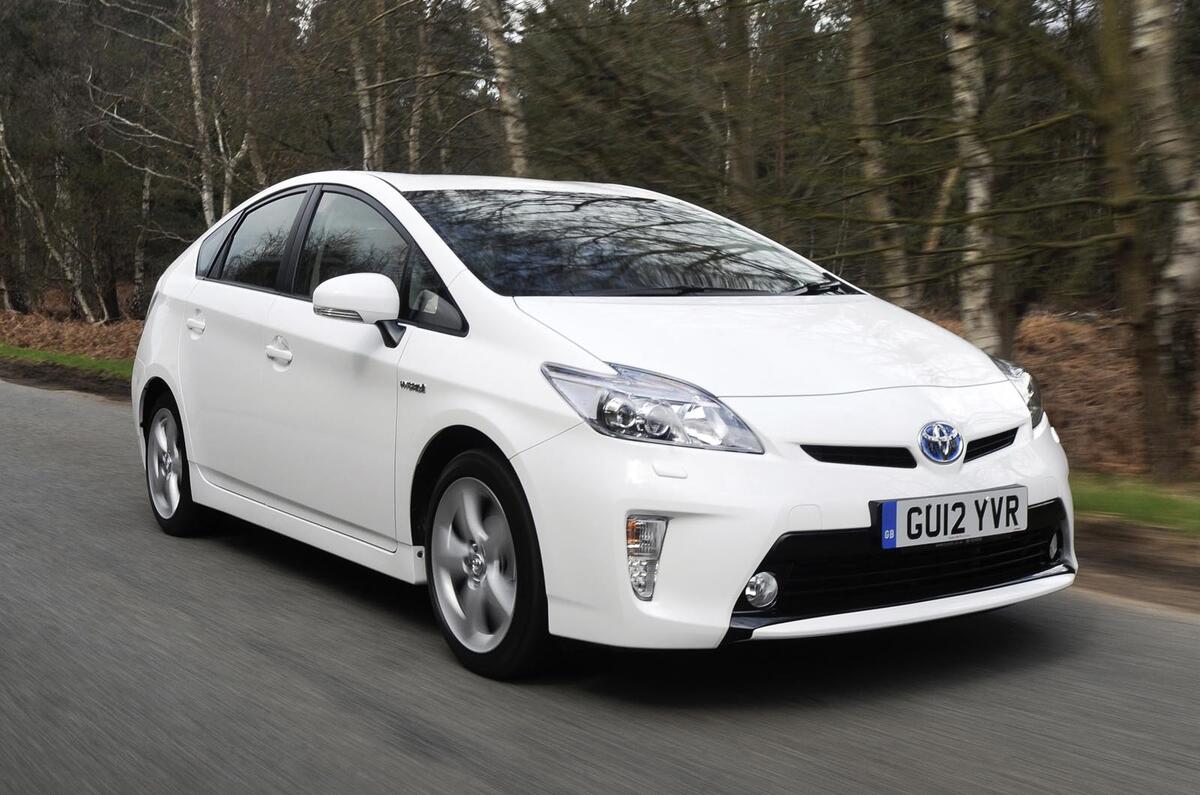The next-generation Toyota Prius will usher in a substantially improved Toyota and Lexus family of hybrid powertrains, as well as a vastly improved chassis and interior refinement.
Toyota's main target with the next version of the Prius, which first went into production in 1997, is to improve on the 50mpg US combined average mpg (approximately 60mpg UK mpg) achieved by the current, third-generation model.
To attain this, it will use batteries with a higher energy density than those installed in the current Prius, as well as an electric motor that is smaller in size and features an improved power density and an internal combustion engine with a world-best thermal efficiency of more than 40 per cent – compared to the 38.5 per cent achieved by the 1.8-litre powerplant in the current third-generation car.
The current Prius electric motor provides four times the power density of the first iteration, and the next Prius's power density will be even higher.
Toyota Motor Corporation’s managing officer, Satoshi Ogiso, said: “These new hybrid powertrains will deliver significantly improved fuel economy in a more compact package that is lighter in weight and lower in cost.
“The performance of this new generation of powertrains will reflect significant advances in battery, electric motor and petrol engine technologies.
"It is part of Toyota’s larger strategy towards the electrification of the automobile, including plug-in hybrid, battery electric and fuel cell technologies. Toyota has a deep commitment to vehicle electrification and therefore, to advancing drive-battery technology."
Ogiso wouldn't be drawn on how much he expected the Prius's fuel economy would improve. He likened the difficulty of the challenge of making significant mpg gains to Usain Bolt shaving time off his 100-metre sprint world record, in as much that incremental improvements are more realistic.
The next Prius, which is expected to reach the market in two to three years, will also benefit from new mechanical underpinnings, said Ogiso, who was part of the team that started development of the original Prius back in 1993.
“To complement the substantial gains in powertrain development the next Prius will ride on a vastly improved chassis," he said. "It will feature the Toyota New Global Architecture (TNGA). It will have a lower centre of gravity and increased structural rigidity. This, along with many other improvements, will allow for beneficial gains in ride and handling agility and aerodynamics.





Join the debate
Add your comment
How to make bubble bath
Thank You Very Much
gfxtra.net
Atkinson cycle
I think that the forthcoming Jazz hybrid will be Atkinson cycle too. As hybrid system costs continue to come down and efficiency goes up it is going to leave ever more complex diesels struggling to keep up. Toyota made a gutsy move all those years ago and are really starting to reap the benefits.
Even my Gen 2 Prius has managed a solid 57mpg over the last 30,000 miles and there aren't many comparable automatic diesels that can top that.
I stand corrected
Thank you stavers and Clarkey for filling in my knowledge gap, I had no idea that other makers were pursuing the Atkinson Cycle.
It would be interesting to know how well this type of engine would work in a lighter non hybrid application?
LP in Brighton wrote: It
The trouble with the Atkinson cycle is that it has lower torque than a regular petrol. Also, in the Toyota case, it's been designed to have a low rev limit to allow the moving components to be lighter, reducing the amount of power available.
That all means that the electric motors are important to bridge the power/torque gap. Without them, the Prius would be undriveable.
Oilburner wrote: LP in
Yes, and the Prius engine is effectively 'stuck in top gear' all the time - there is no way the amount of torque multiplication for the petrol engine can be varied in the Prius transmission. The electric motor/generators make up this gap too.